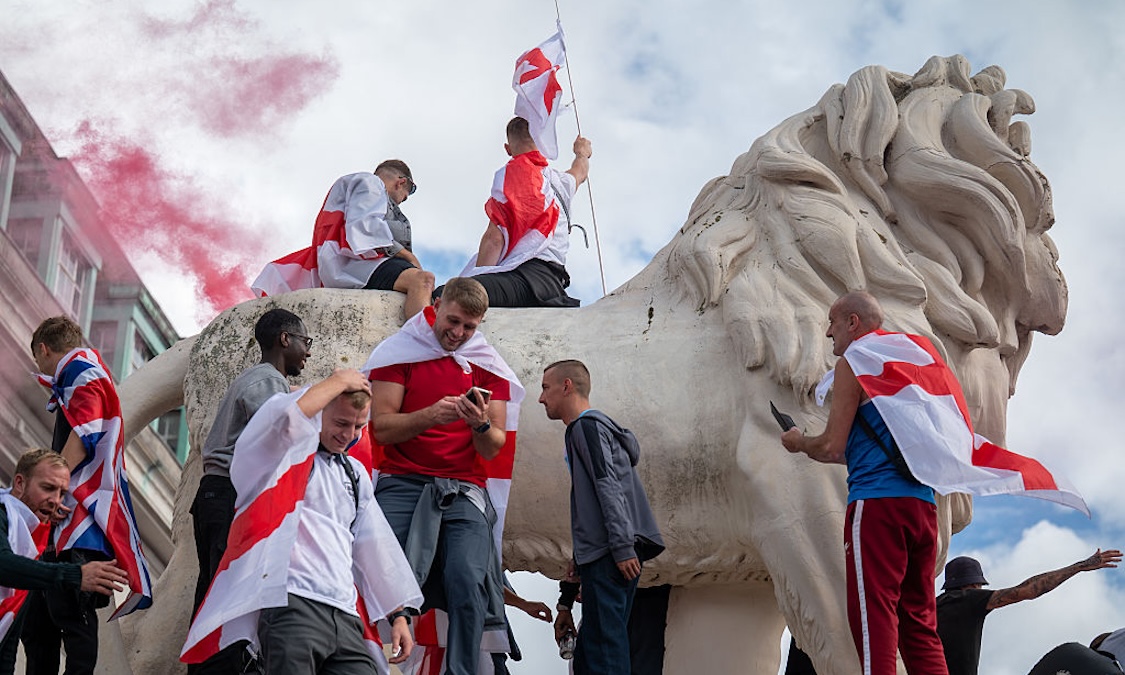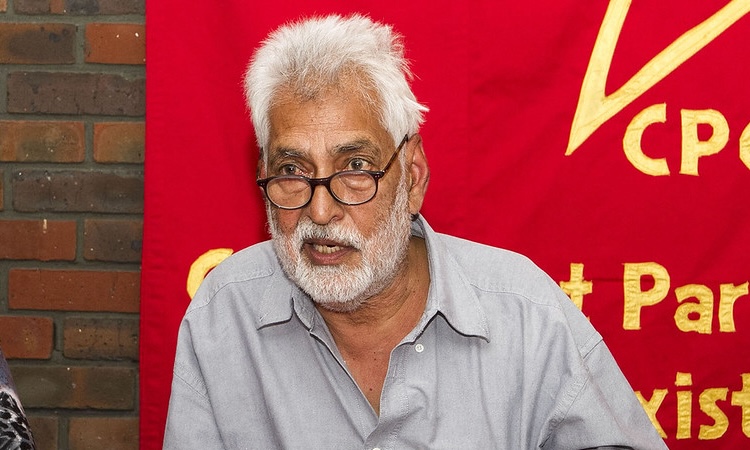Amongst a chaotic riot of medieval buildings, as a throbbing mass of humanity slithers its way around Edinburgh’s Royal Mile, the political draughtsmen of the Scottish National party (SNP) who made this ‘picture’ possible nestle in a small ‘modern’ office.
In July 2023, these offices were stormed by Police Scotland as part of the force’s multiyear investigation into SNP misappropriation of party funds. The ringmaster behind this corruption scandal was Peter Murrell, husband of former party leader and former first minister Nicola Sturgeon. Mr Murrell doled out over £666,953 in party money to keep himself safe when Ms Sturgeon’s predecessor and mentor Alex Salmond was put on trial on charges of sexual assault.
Part of Murrell’s spending spree was aimed at protecting the political reputation of himself and his inner circle, and apparently included running a ‘cash for parliamentary seats’ scheme. It transpires that he even siphoned off £100,000 via the purchase of a caravan, which then sat unused outside his mother’s home in Fife.
As the investigation into her husband’s corruption proceeded, Nicola Sturgeon was eventually forced to stand down as first minister, ultimately to be arrested in much the same manner as her spouse had been.
Many, indeed most, of the tourists walking the Royal Mile have little clue that they are passing the SNP’s office. Nor are they aware of the web of corruption and sleaze that leads back to those premises. Certainly very few of them are conscious of the sheer magnitude of the exploitation from which they passively benefit while visiting the commercialised city centre.
Scotland transformed into McDisneyland as meaningful jobs vanish
Today’s McDisneyland Edinburgh, with streets full of AirBnB flats amidst skyrocketing rents, rests on a mountain of drug-death bodies, casualties of the city’s deindustrialisation and of the steady impoverishment of its working-class inhabitants. It also rests on the present-day low-pay hospitality economy, sustained by local and European workers on zero-hour contracts and the most ‘flexible’ of terms.
The story of how all of this came to pass cannot be related in a single article. Our aim here is to examine just one of its latest chapters: the opening of a Flamingo Land tourist resort in Loch Lomond.
Situated just an hour from Stirling and Glasgow, Loch Lomond sits at the mouth of Scotland’s densely populated central belt. So often sung about, the Loch holds significance for many reasons, key amongst them being that it acts as a gateway to the highlands for those in Scotland’s central belt and vice versa for those in the north.
The application to build a sprawling tourist resort at Balloch on the southern shore of Loch Lomond was unanimously rejected by the National Parks board after 155,000 people lodged objections via a long-running campaign led by Green MSP Ross Greer. Objections also came in from the Woodland Trust, Ramblers Scotland, the National Trust for Scotland and environmental watchdog Sepa.
The class issues at the heart of this controversy are symptomatic of the wider political-economic trends across the region – and, in fact, all over Britain: a focus on selling off national assets to domestic and international capital; an increasing economic dependency on low-wage transient work; and the balkanising of yet another town to create profits for big landlords.
Resistance to the proposed development has yet to fully develop, but the whole scheme has already exposed a key contradiction at the heart of contemporary Scottish politics. Scottish nationalism will go no further than the limits dictated by the British capitalist class whose interests the SNP really represents. In so far as the SNP has a plan for Scottish economic development, this seems to be roughly the same plan as that of the Labour party.
Looking beyond all the Scotland-centric rhetoric engaged in by all parties north of the border, one can see that the general trend in Scotland since the 1970s has been the same as in other parts of Britain – relentless deindustrialisation and the replacement of skilled manufacturing work with low-paid service sector jobs.
The reshaping of Scotland into a McDisneyland has come about because this is the only investment that the capitalist class has been interested in, and thus the only investment forthcoming from governments of all stripes and at all levels.
Imperialism means deindustrialisation
The deindustrialisation we see across Scotland and the rest of Britain has taken place because ours is the oldest imperialist country in the world. Lenin identified over a century ago the reasons why the monopolists in the imperialist heartlands inevitably had to turn to the export of capital to secure greater levels of profit. Even in 1916, he could point out how this was leading to areas of the imperialist countries being transformed into leisure parks for the bourgeoisie.
A century later, the removal of almost all British industry to countries where labour, land and raw materials are all cheaper, thus securing maximum profit for the owners of capital, has led to a situation where almost the entire economy has been transformed into a parasitic excrescence on the body of the world. Britain makes very few of the goods its people consume and the majority of jobs today are divided into the main categories of service/hospitality, logistics/distribution/retail, and facilitating the loot machine based out of the City of London’s infamous ‘square mile’.
Throughout its time at the helm of the devolved parliament in Edinburgh (2007-present), the SNP’s leaders have wholly embraced their role as delivering agents of this agenda, taking over seamlessly from their Labour party predecessors and presiding over further rounds of deindustrialisation. The partial closure of the Grangemouth oil refinery, the starving of the Ferguson Marine shipyard of work, and now the threatened closure of Dennis bus factory, none of which have received any assistance from the SNP government, clearly shows where the nationalists’ ‘vision’ for Scotland is leading us.
The SNP has made it clear that it will not put up the slightest resistance to the relentless ruling-class push towards a low-wage, zero-rights economy. Its embrace of the idea of ‘special economic zones’ (ie, areas of maximum exploitation and minimal workers’ rights) is only further proof that the Scottish political establishment is as anti-working class as its London equivalent.
Devolution for Scotland was presented as a way to “keep the Tories out” of Scotland and (somehow) secure permanent ‘left-wing’ rule, either by Labour or the SNP. What it has actually done is create careers for 129 more bourgeois politicians and for countless civil servants in a vast bureaucracy (significantly increased in size by Sturgeon), all funded by British imperialism. None of these politicians or bureaucrats have any interest in challenging the British ruling class, which pays for their comfortable existence.
As communists, we must help workers in Scotland understand this uncomfortable truth. The SNP and its ilk are inextricably linked to the priorities of the British ruling class. They are, in effect, simply the regional management team for British capital.
This is why all they will offer Scottish workers are low-paid, casualised jobs in the tourist industry while our remaining local industries are left to wither and die. Workers in Scotland, just like workers across the rest of Britain, need socialism, not the false promises of the SNP, who are only offering greater poverty and immiseration.















